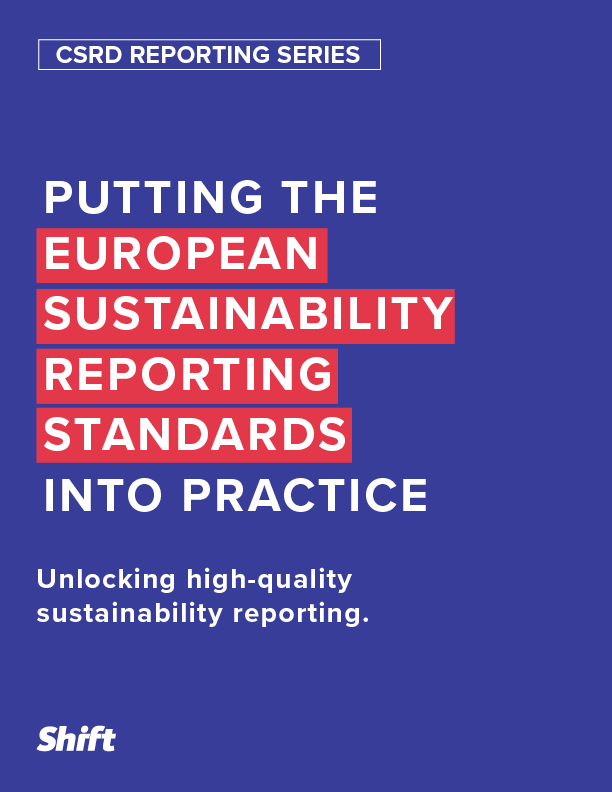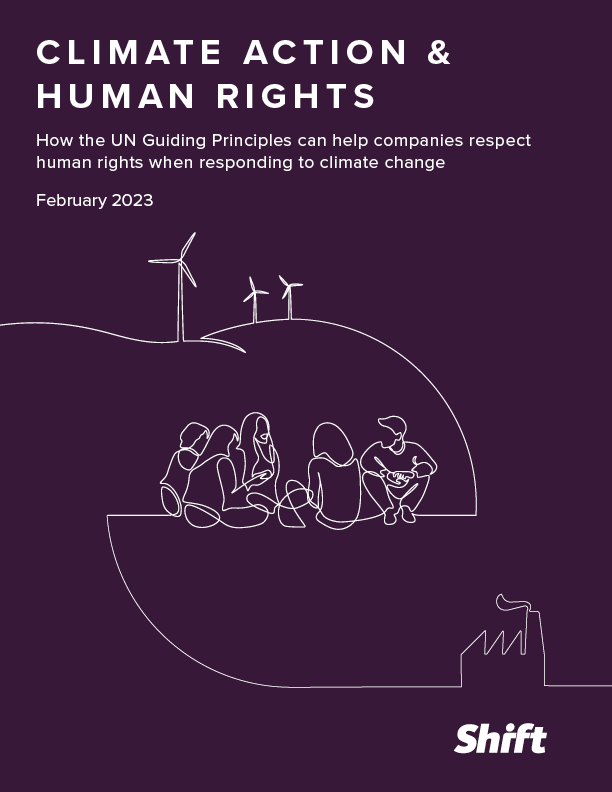Featured Resources
The Shift Library
Shift’s library has a growing collection of resources, tools and reports designed to help a variety of stakeholders put the UN Guiding Principles into practice. By default, resources are listed chronologically. You can use the search bar to look for titles by keyword or author, or use the filters below to search by change agent, thematic expertise, pillar of the UN Guiding Principles and/or date. Looking for Valuing Respect tools and resources? Visit the dedicated library of resources of the project, here.
Filter by:
Living Wage Accounting Model and Progress Tool
The Living Wage Accounting Model provides organizations with the means to measure and articulate progress towards payment of a living wage for their own employees, contractors, and workers in the first tier of their supply chain, by demonstrating the year-on-year movement of workers towards living wages.

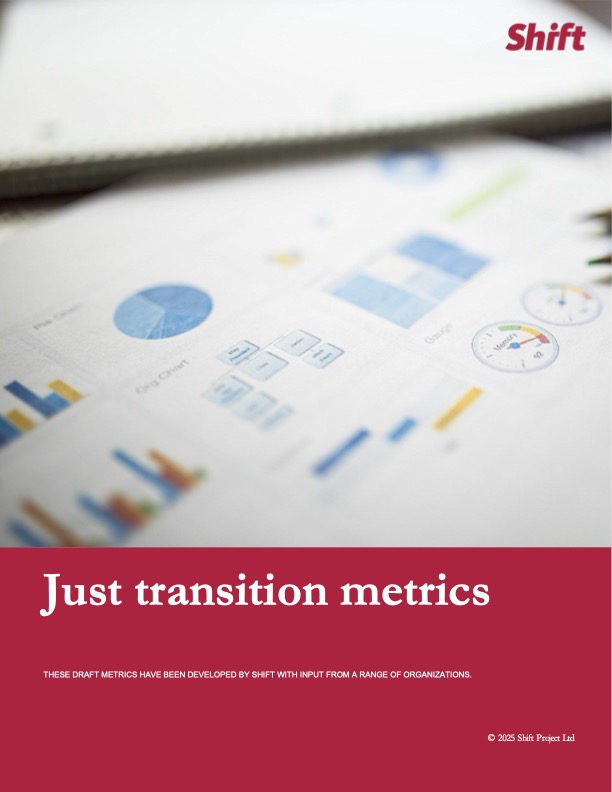

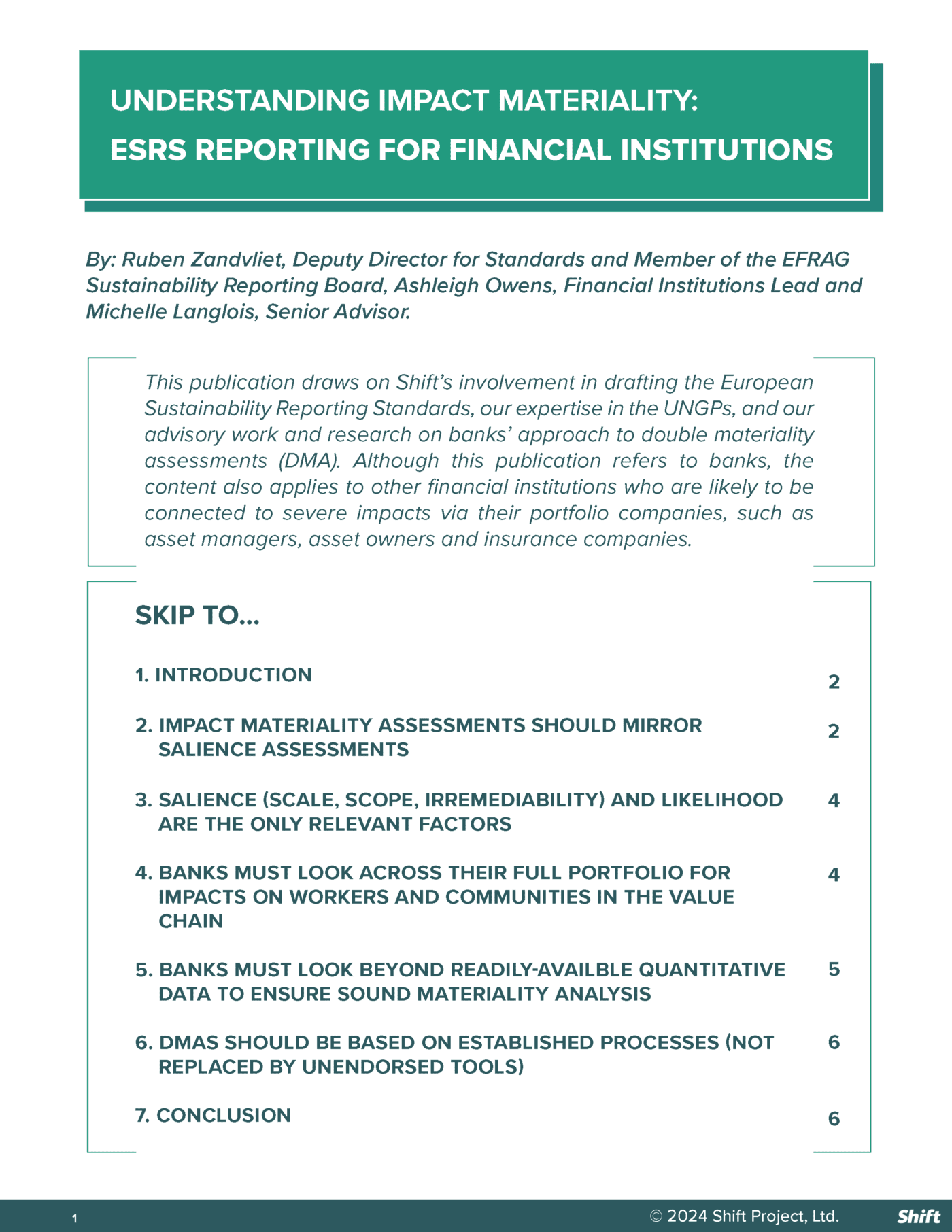
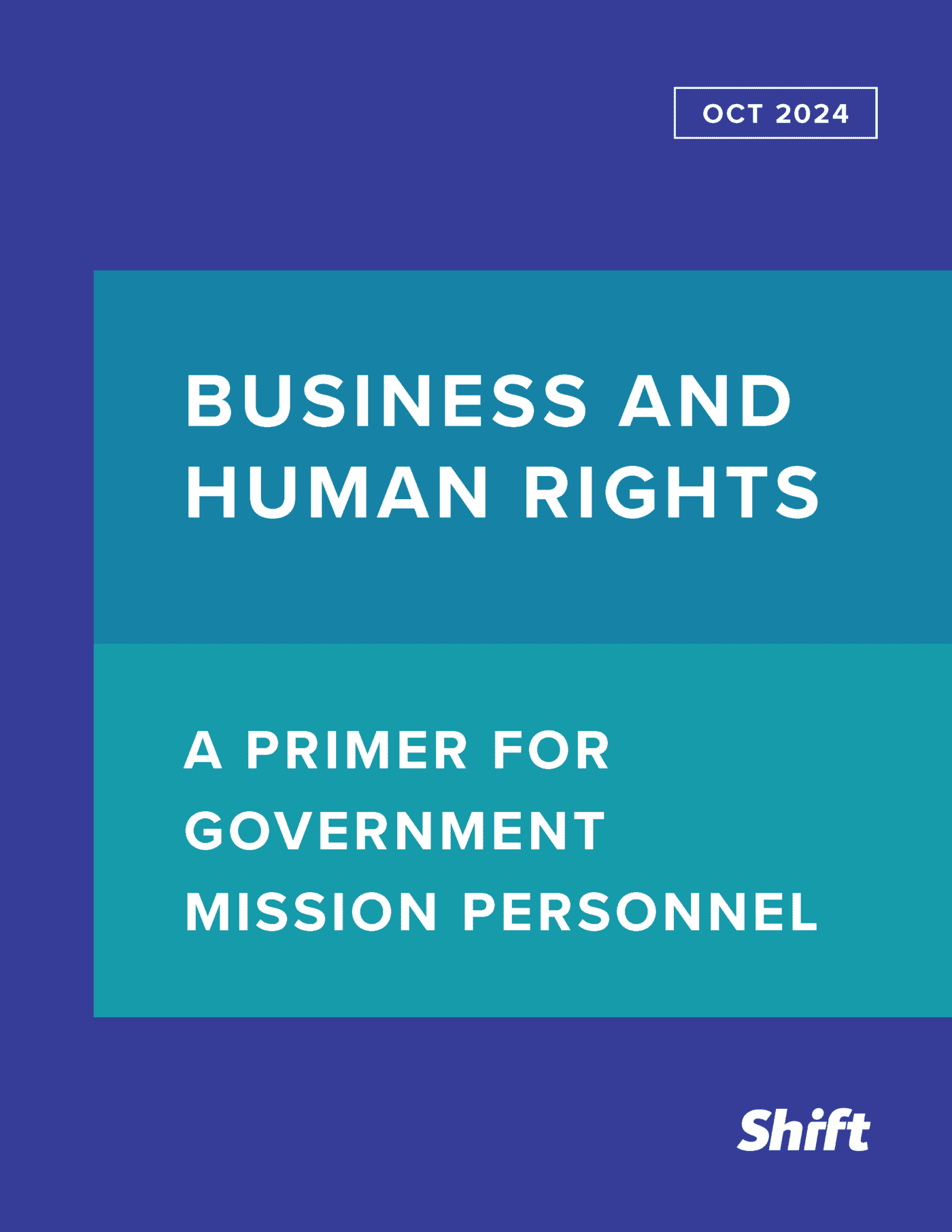

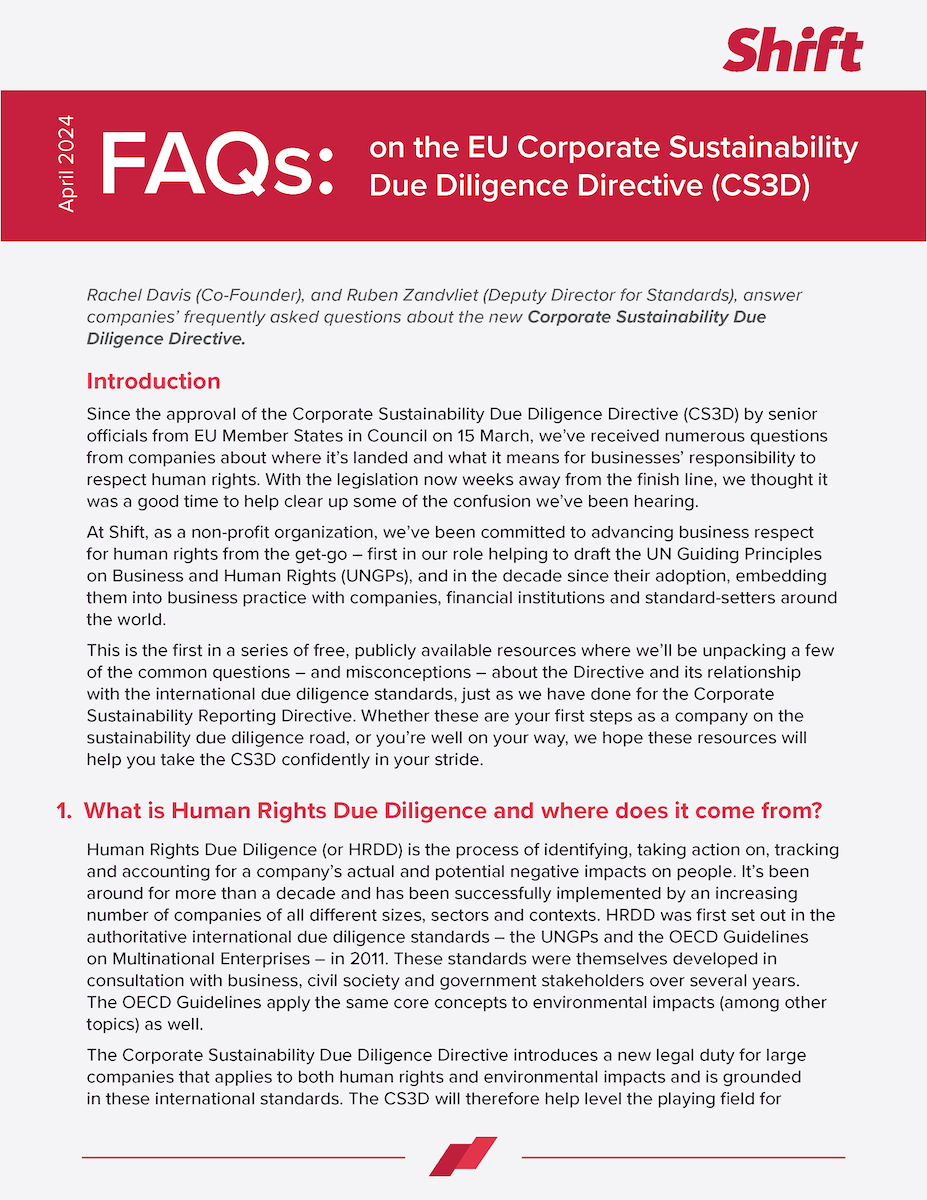
Tackling Child Labor: A Guide for Financial Institutions
This resource is a joint publication by Shift, The Centre for Child Rights and Business and UNICEF. It captures some of the key take-aways from the Financial Institutions Practitioners Circle session on child labor, and draws on the experience of the three organizations working with real-economy companies and financial institutions.
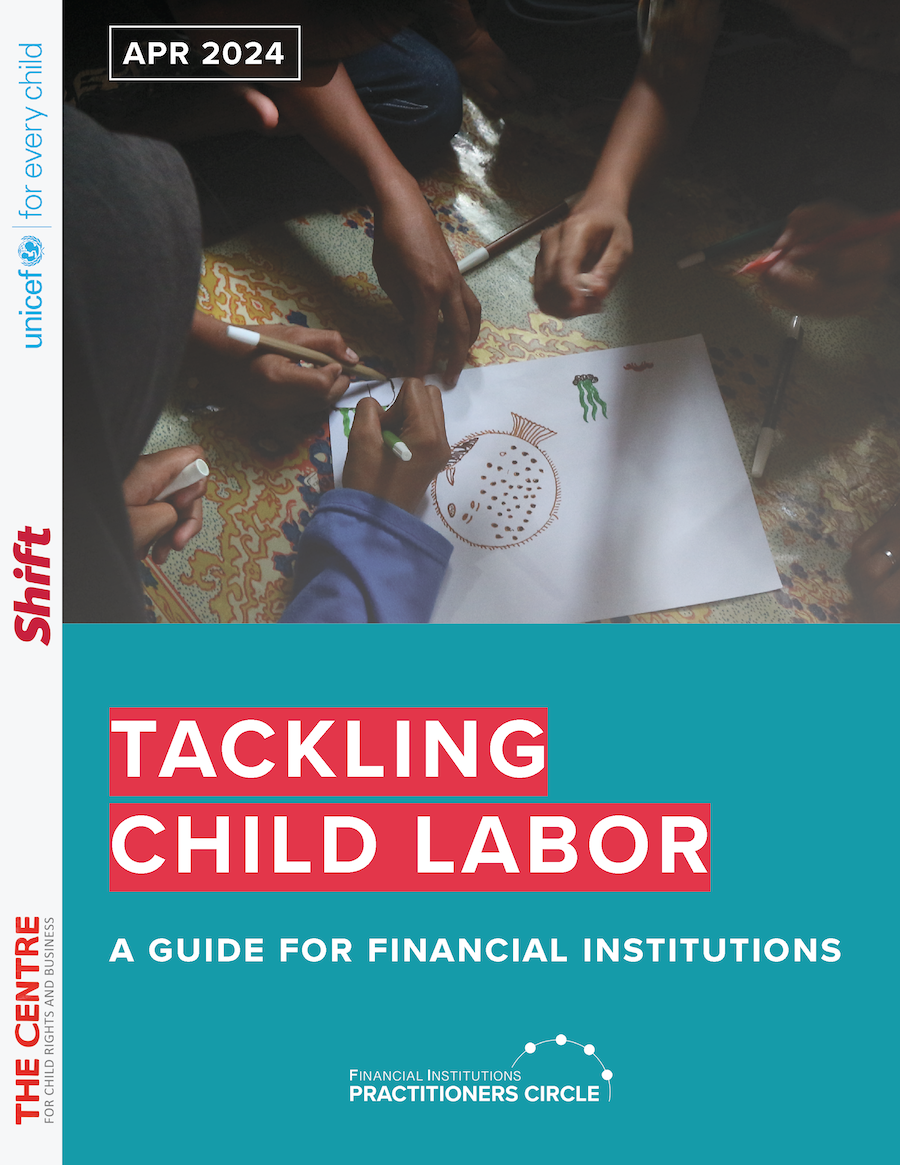
Shift’s Response to the UN Working Group Consultation on Investors, ESG, and Human Rights
This is Shift's submission to the 2023 UN Working Group Consultation on Investors, ESG, and Human Rights. This response builds on a decade of experience working with a range of financial actors, including investors, to drive the successful implementation of the UN Guiding Principles on Business and Human Rights.
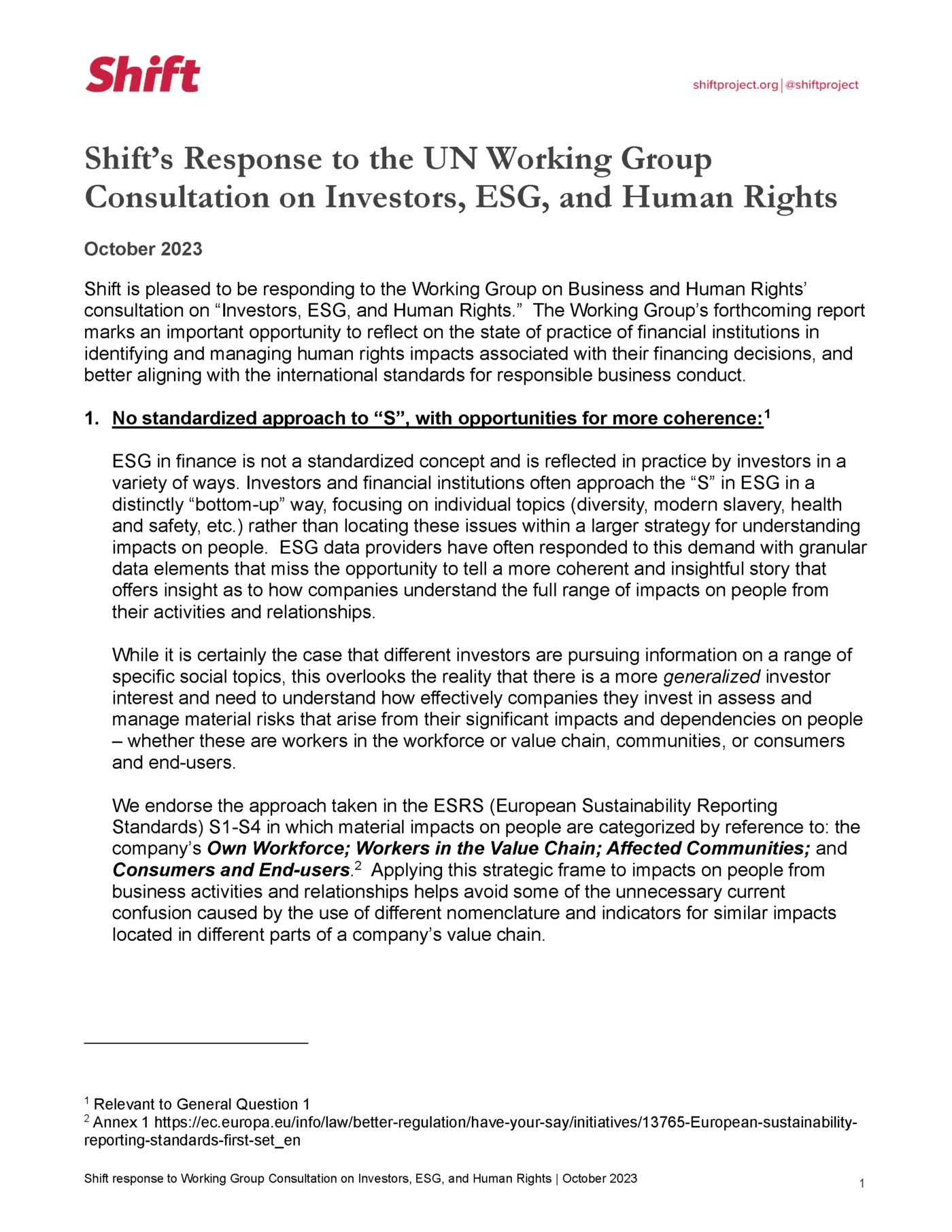
Aligning the EU Due Diligence Directive with the International Standards: Key Issues in the Negotiations
In this report, Shift takes stock of where progress has been made in negotiations on the Corporate Sustainability Due Diligence Directive – and where work still remains – to ensure greater alignment between the positions of the three EU political institutions – the Commission, Council and Parliament – and the international due diligence standards.
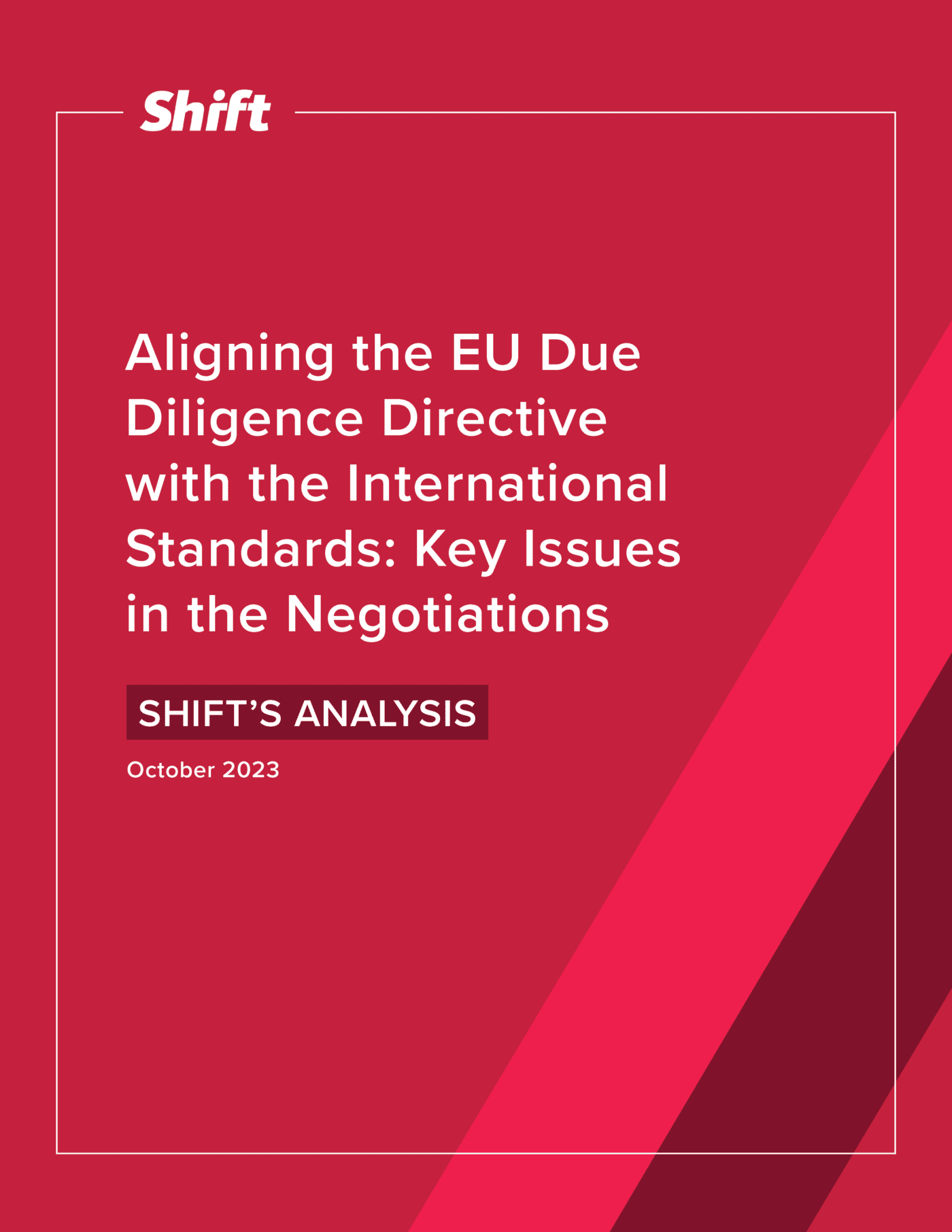
More resources


